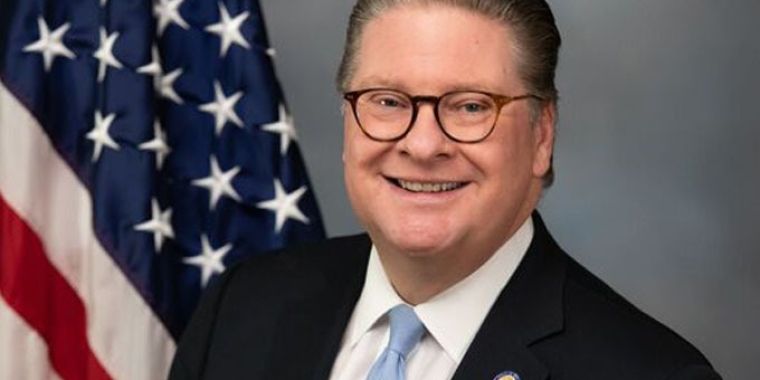Senators Harckham/Mayer Hold Press Conference on Groundbreaking Changes to Substance Abuse and Mental Health Treatment in NY
April 23, 2019
-
COMMITTEE:
- Alcoholism and Substance Use Disorders

Watch FIOS 1 coverage HERE and the full video HERE
(Mt. Kisco, NY) State Senator Pete Harckham, 40th Senate District, and State Senator Shelley B. Mayer, 37th Senate District, held a press conference today at Mountainside, a Chappaqua, New York substance abuse treatment center, to highlight the groundbreaking substance abuse and mental health treatment provisions passed as part of the 2019 New York State Budget.
Highlights included:
Substance abuse treatment changes
1. Doubling the number of days of in-patient substance use disorder treatment from 14 to 28, before a concurrent review by insurance companies.
2. Reducing the number of co-pays that patients in substance abuse outpatient care must pay so the visits are affordable.
3. Requiring treatment facilities to provide to both the patient and his/her insurer a written discharge plan prior to discharge.
4. Eliminating duplicative license requirements allowing for integrated care for patients.
5. Attracting and retaining employees in the field of substance abuse care by providing for a cost of living adjustment and a loan forgiveness and scholarship program.
Mental health treatment changes
1. Requiring inpatient/residential or outpatient mental health treatment to be covered on par with medical treatment or surgery. In other words, coverage cannot apply financial requirements or treatment limitations to mental health benefits that are more restrictive than those applied to medical and surgical benefits.
2. Codifying existing federal substance use disorder and mental health parity standards and establishing them as the minimum going forward - in other words, a reduction in federal parity standards would not result in a reduction in New York’s.
3. Requiring policies that provide comprehensive coverage (including prescription drug coverage) to cover formulary drugs for substance use disorder treatment without prior authorization.
4. Eliminating the cap of 680 hours of treatment per policy or calendar year for applied behavior analysis - a parallel cap did not exist for non-MH/SUD treatments.
5. Requiring insurers to disclose whether providers for substance abuse disorder and mental health treatment are accepting new patients and whether they are affiliated with participating OMH/OASAS-certified facilities.
Senator Pete Harckham, Chair of the Senate Committee on Alcoholism and Substance Abuse, said: “These measures are game changers for those suffering from addiction. Patients will now have a fighting chance to conquer their substance abuse disorder instead of being booted out with no outpatient plan after only two weeks of treatment. Expensive multiple co-pays in outpatient care are now a thing of the past, making outpatient visits more affordable for all who need treatment. Substance abuse patients deserve better treatment and they got it in this state budget.”
Senator Shelley B. Mayer said: “I am pleased that this year’s state budget included legislation to strengthen the state’s response to the opioid epidemic facing our region and our nation and provides real improvements to mental health coverage. In addition to doubling the number of days insurance companies must cover for inpatient treatment for substance abuse disorders and reducing the number of co-pays for someone seeking outpatient treatment, the budget codifies and expands the parity provisions for mental health coverage. These changes will help those suffering from opioid abuse and mental health diseases, as well as their families, to get the effective treatment they so desperately need. I am proud to continue to work with my colleagues and State Senator Peter Harckham to make the necessary changes and investments to help residents and families facing these challenges.”
Senator David Carlucci said: "We know 130 Americans die every day from an opioid overdose. People may be seeking treatment, but are turned away when insurance will not cover it. The budget addressed this major problem, requiring insurance companies cover longer inpatient treatment, which will create better outcomes. It's time insurance companies actually treat addiction like a medical condition and allow people the treatment they desperately need.”
Susan Salomone, Co-Founder and Executive Director, Drug Crisis in Our Backyard said: “The addition of 14 days without authorization by insurance companies is a huge step in helping people struggling with addiction begin to see the light. Recovery is possible. Group treatment and the length of treatment, like with any disease, is very important. We thank the Governor, Senate and Assembly for their recognition of the need for extended care for addiction."
Amy Sedgwick, Director of Clinical Operations at Mountainside said: "This groundbreaking legislation will serve as a model across this country to vastly increase the access and affordability of treatment to those in need and smashes the managed care barriers that have long prohibited treatment providers from providing the adequate length of treatment. The key provisions enhance Mental Health Parity, reduce the co-pays for clients and remove the “cap” from allowable annual hours. The impact of this legislation will be immediate and families and communities across this state have just been given a real fighting chance thanks to the leadership and efforts of Senators Harckham and Mayer.”
John Coppola, Executive Director, New York Association of Alcoholism and Substance Abuse Providers said: "In the midst of an overwhelming opioid crisis, substance use disorders service providers are dealing with a workforce crisis caused by inadequate Medicaid and insurance rates and, stagnant state funding. The student loan and tuition assistance support, championed by Senator Harckham, will make a difference for programs working to recruit and retain competent staff. This much needed support opens the door for a significant workforce investment.
New York State Senate District 40 includes parts of Northern Westchester (Buchanan, Cortlandt, Croton-on-Hudson, Lewisboro, Mount Kisco, Mount Pleasant, New Castle, North Salem, Peekskill, Pleasantville, Pound Ridge, Sleepy Hollow, Somers, Yorktown) Putnam (Brewster, Carmel, Patterson, Southeast) and Dutchess (Beekman, Pawling).
Share this Article or Press Release
Newsroom
Go to Newsroom
Bail Reform Changes Included in New Budget
April 6, 2020


